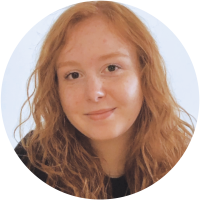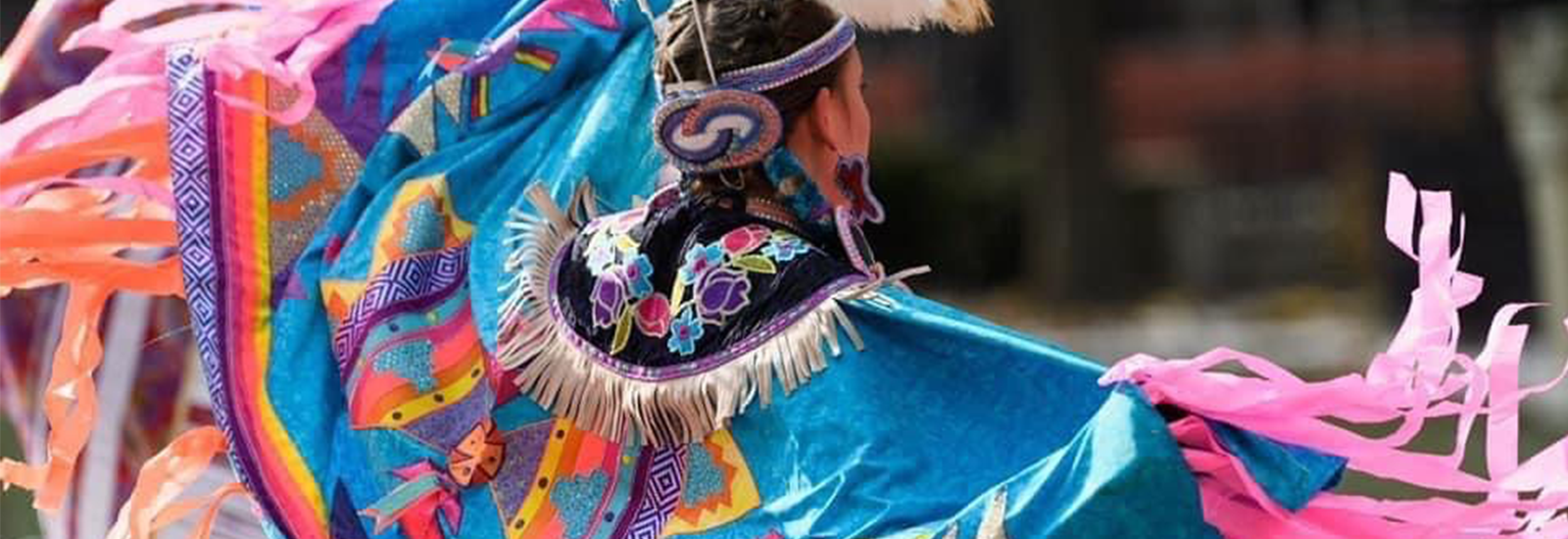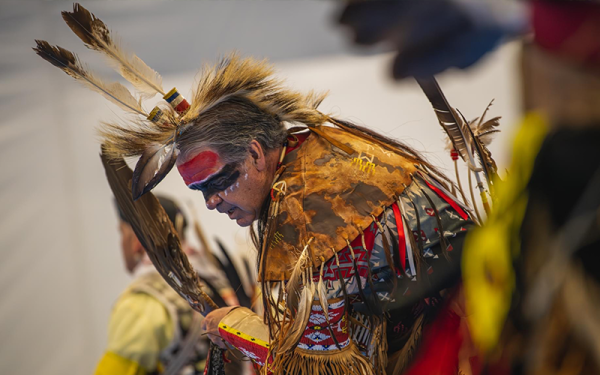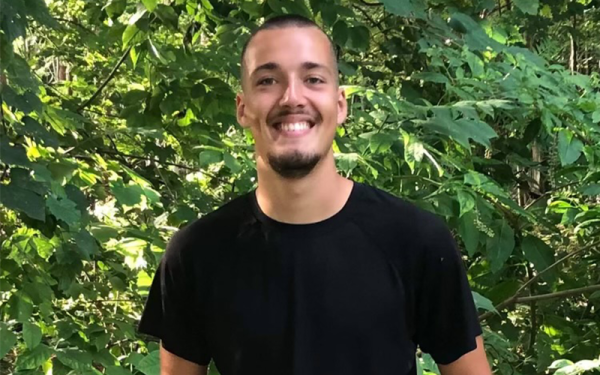
About the Author
EMILY LAY (she/her)
Emily Lay is an undergraduate student fellow in the Global Arts + Humanities 2022-23 Society of Fellows cohort. She is finishing a degree in French horn performance and intends to graduate in the spring. After graduation Lay will attend Stony Brook University pursing a PhD in Critical Music Studies with a focus in ethnomusicology. Her main research focus is on Indigenous musical tradition, and she intends to continue this research into her professional career.
Project Overview
Within this project, I aim to show history keeping practices within music and dance and how their presentation at Pow Wows acts as archives through lived tradition. My research methods remain community centered through conducting interviews to show the significance of the lived traditions presented within music and dance practices that are often presented at Pow Wows. While these traditions are not exclusive only to Pow Wow performance, they are traditions that one could encounter in this setting. I worked with many people who perform both inside and outside the context of Pow Wows to gather multiple different histories and viewpoint on the traditions that they participate in and present.
As institutions become more focused on diversity, equity and inclusion initiatives, it is important to recognize places where there is still systemic discrimination against communities. Archives have the ability to hold institutionalized violence towards Indigenous communities. Thus, violence is perpetuated by the archives themselves being suited to and built to around the best way to preserve the history of the dominant culture.
Music and dance are forms of history keeping that can be neglected in a system of archives that is built to value written documentation. Within these types of archival systems history keeping through embodied practices like music and dance are oftentimes invalidated. This project not only seeks to reframe the concept of archive but to show real examples of history keeping within embodied practices and lived traditions acting as archives for Indigenous communities. My goal is also to show the importance of involvement in the continuation of these lived traditions from community members.
“Since archives are institutions that require funding, authorization, and legitimacy, it is no wonder that they have traditionally reflected the dominant culture and privileged the voices and stories of the powerful.”
Jimerson, Randall C. "Archives and memory." OCLC Systems & Services: International digital library perspectives (2003)
Interviews and Methodology
Over the course of this project, I have attended many Pow Wows in and around Ohio. I believe it was very important to put myself in this environment to understand the context of community building and history keeping practices within these events. I also wanted the opportunity to speak with people participating in this tradition to be as respectful and understanding as possible. This is an ongoing project; I will continue to add interviews to this webpage for as long as I can. I chose to keep the contents of the interviews freer through more open-ended questions to make room for what the people I am interviewing deem as important. Within the videos I keep them as unedited as possible with the exception of breaks, large gaps, side conversations, connection issues and of course, anything they want to be removed. The reason I chose to keep the interviews like this is because it is not my place to decide importance. This is one of the main issues with traditional conceptions of archives. All of my interviewees were told about the context and implications of this project and given the option to decide how they wanted to proceed with the interview.



